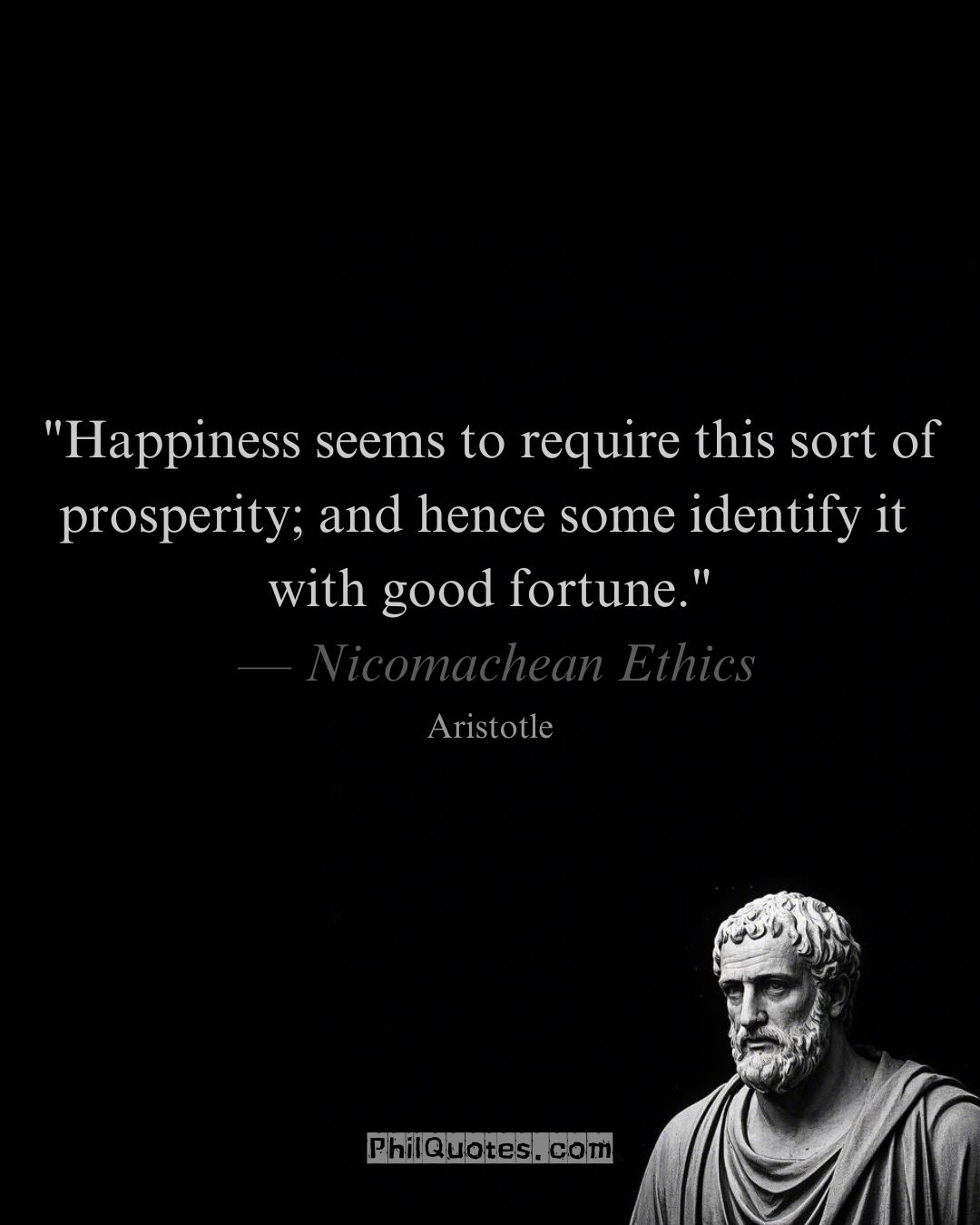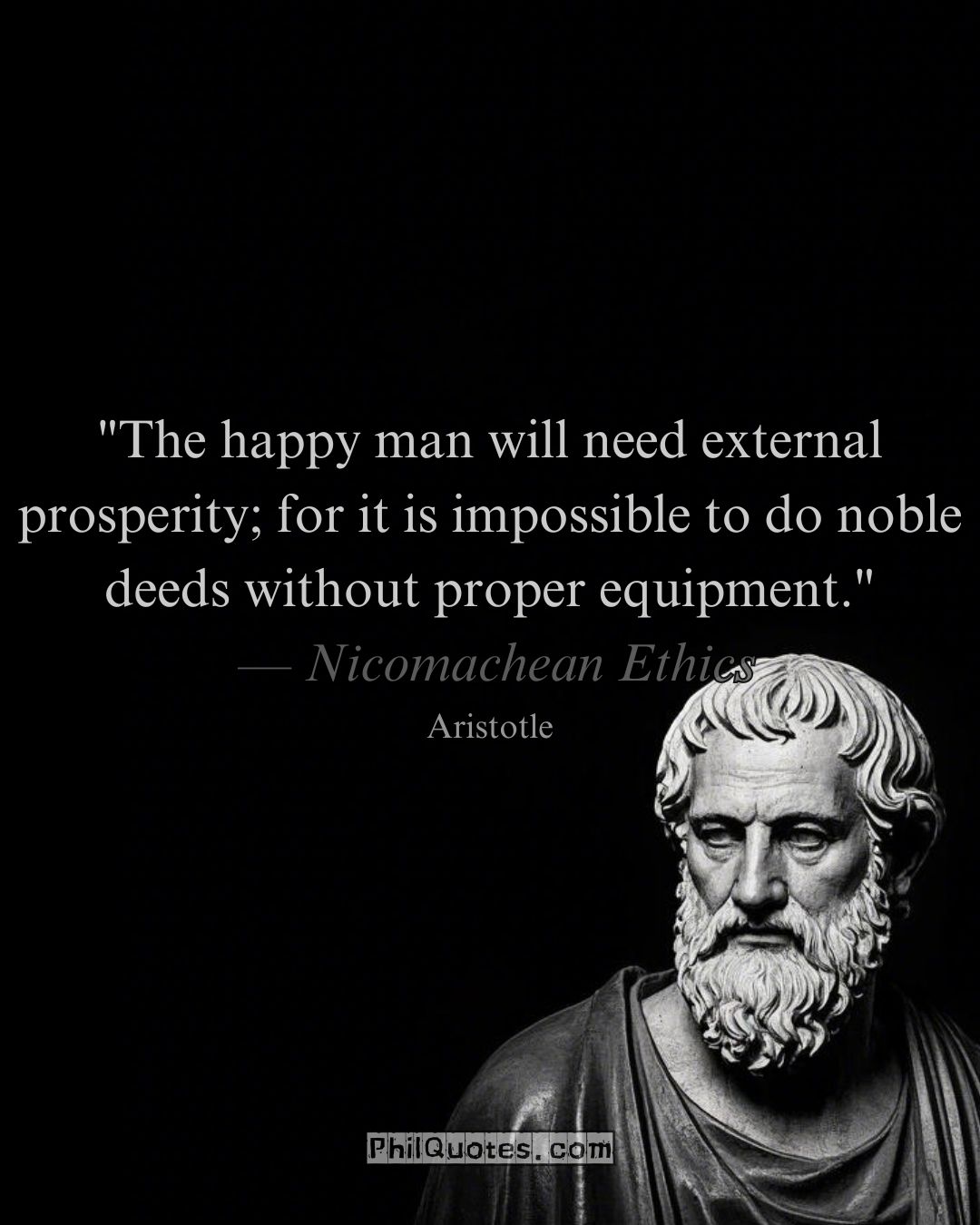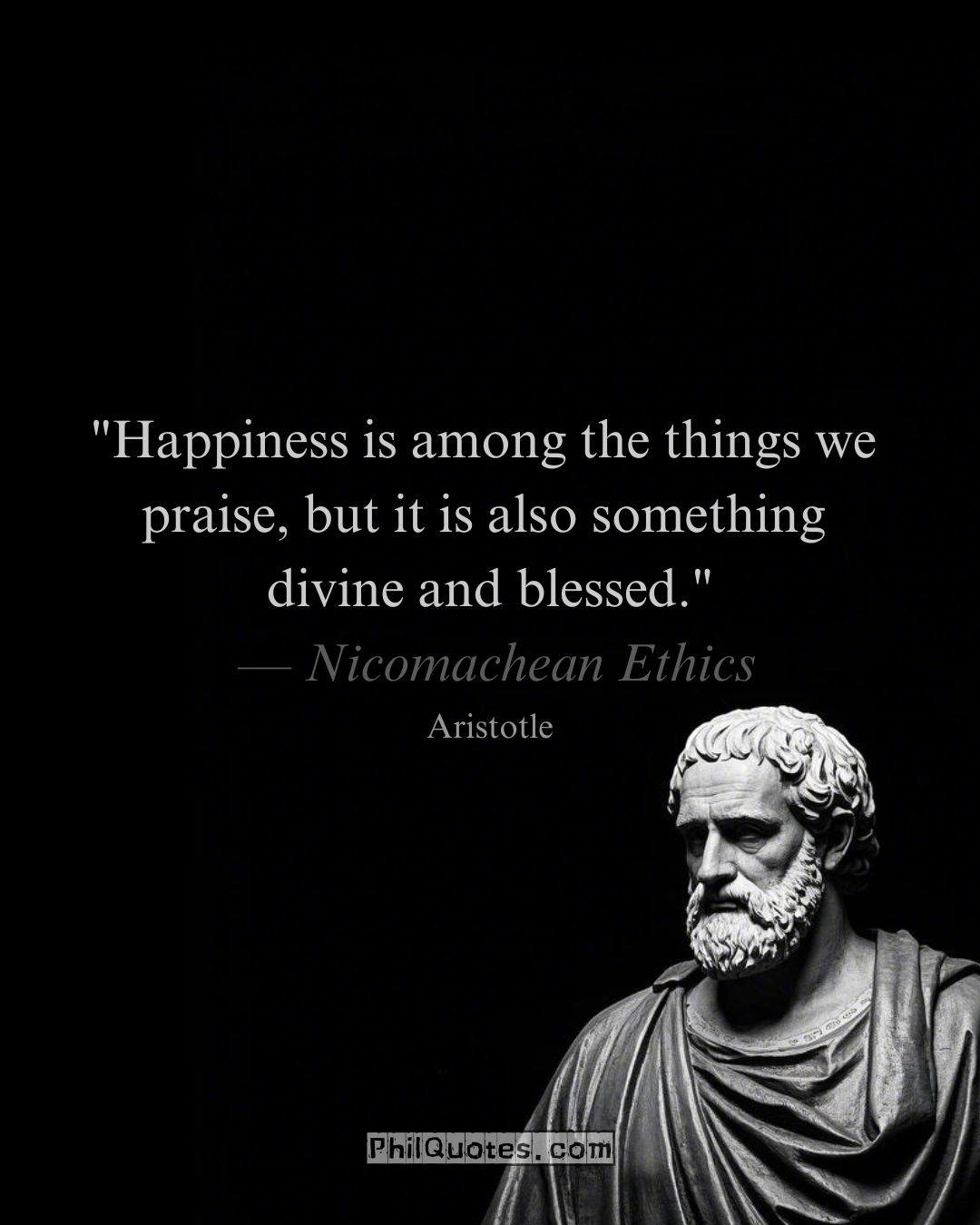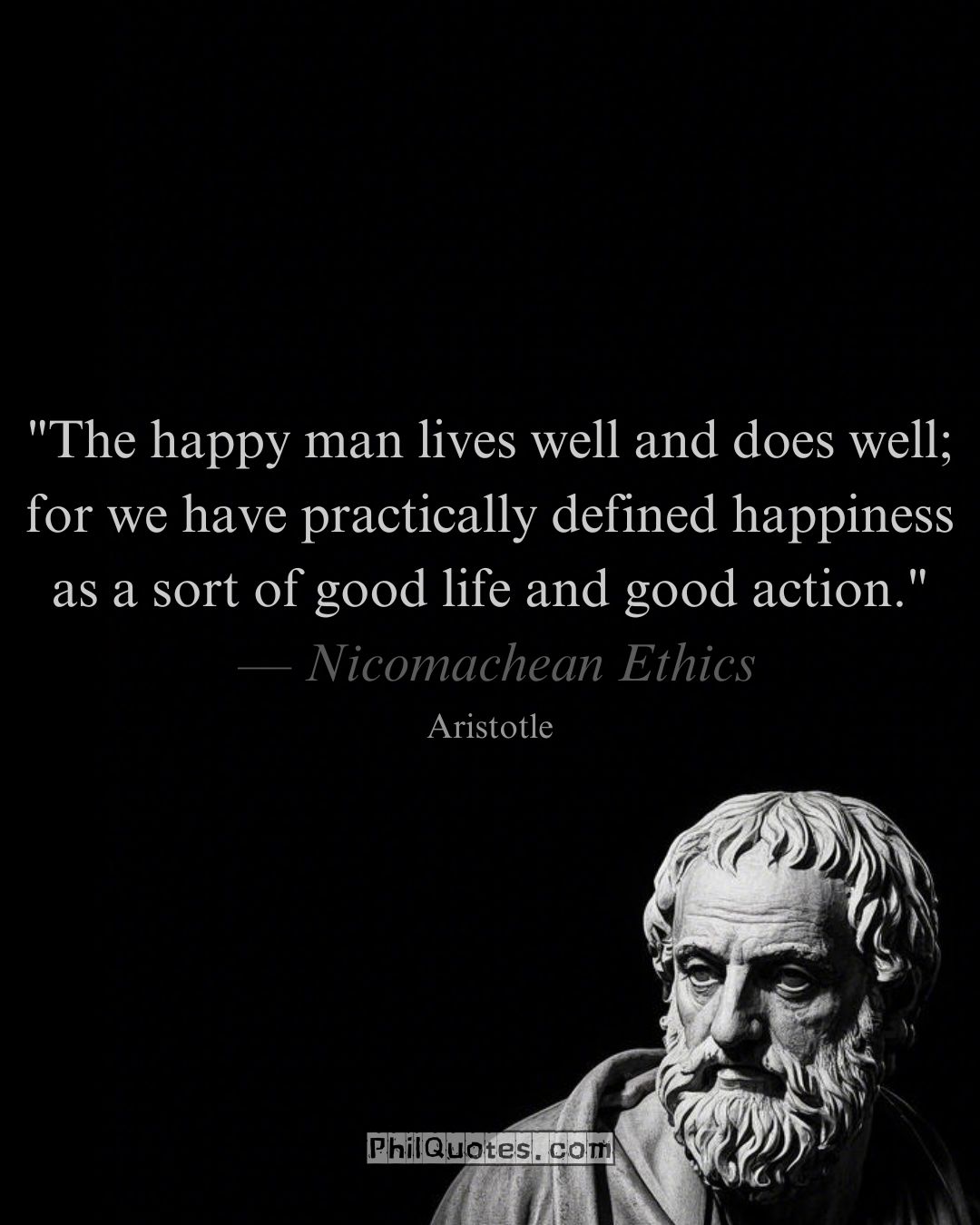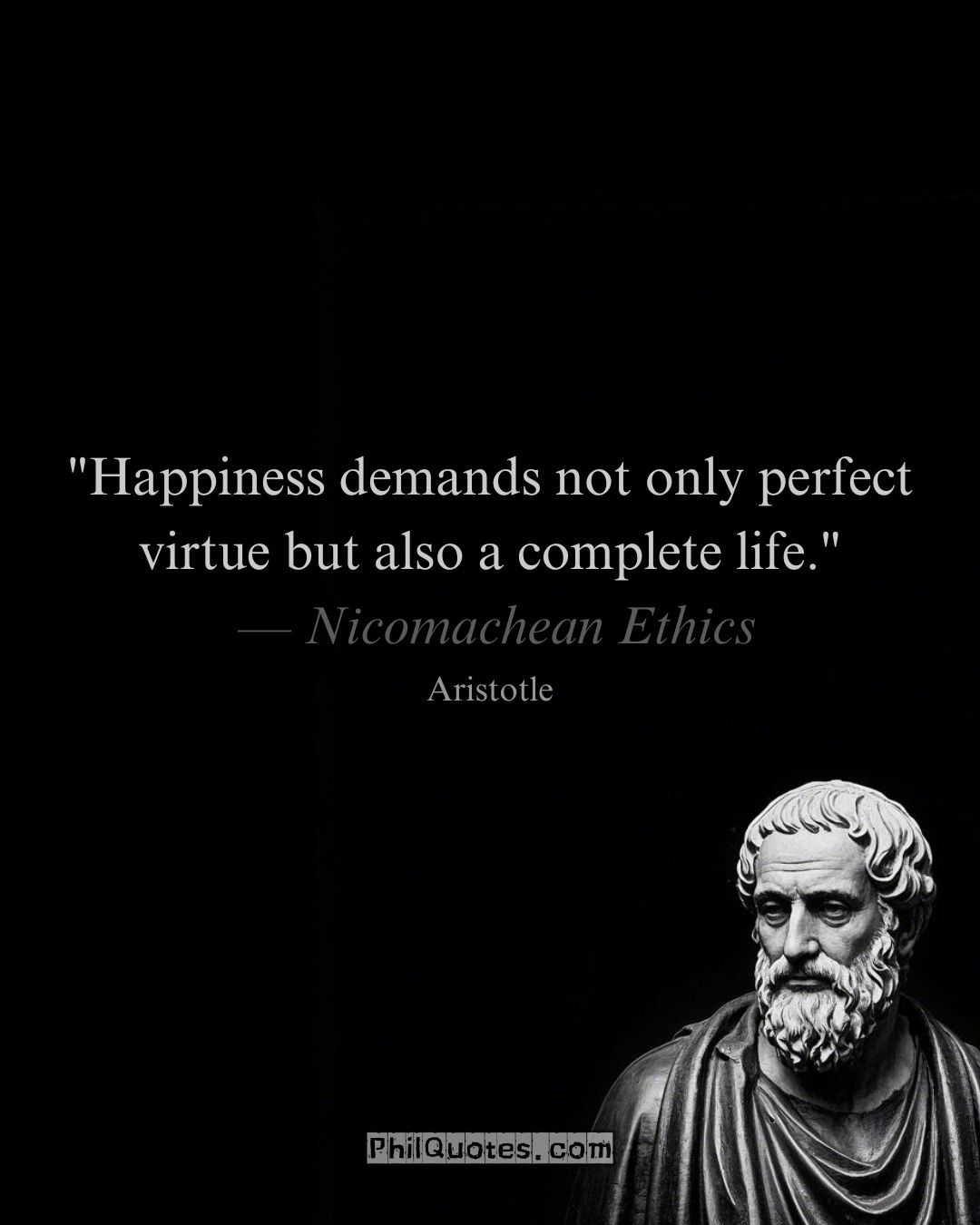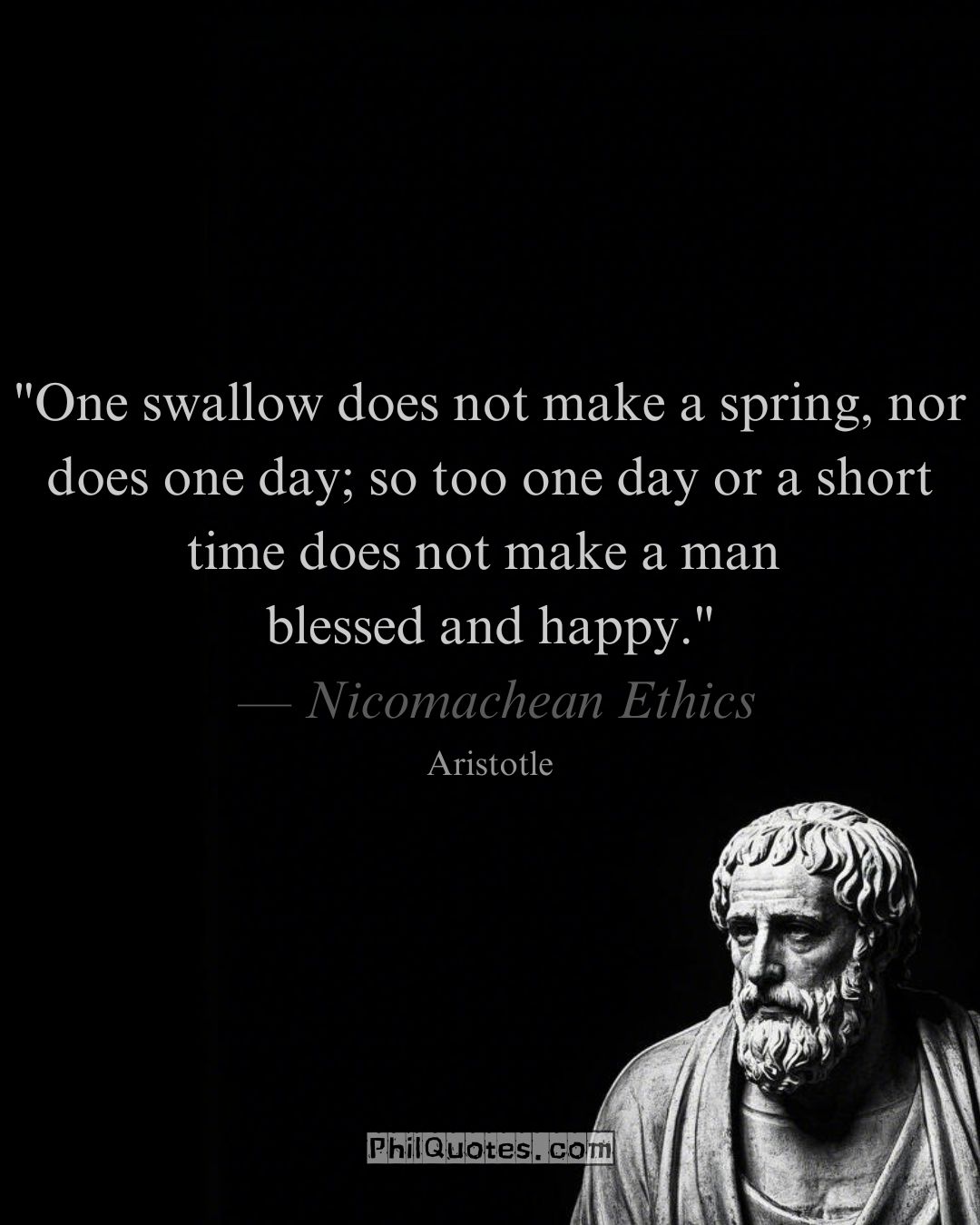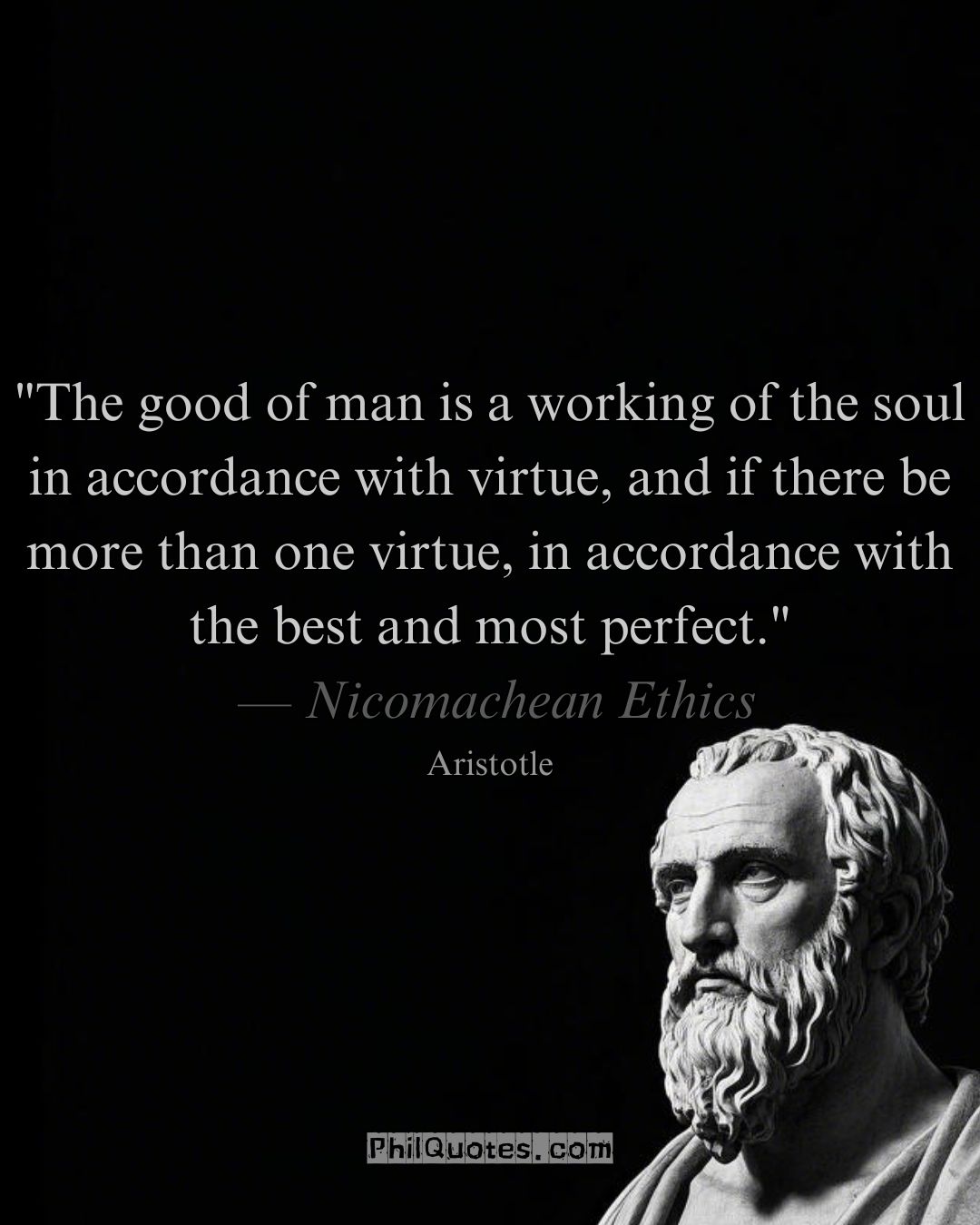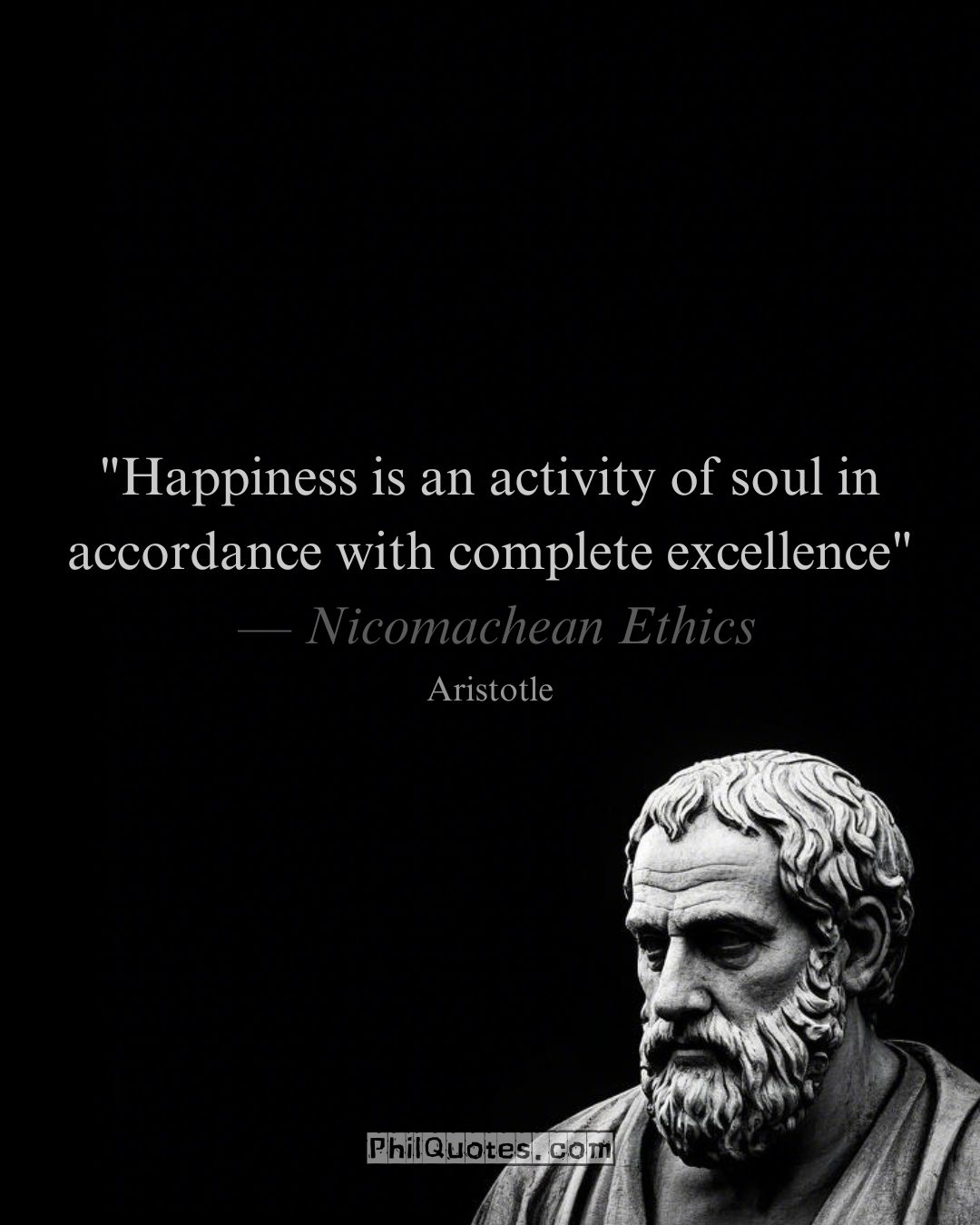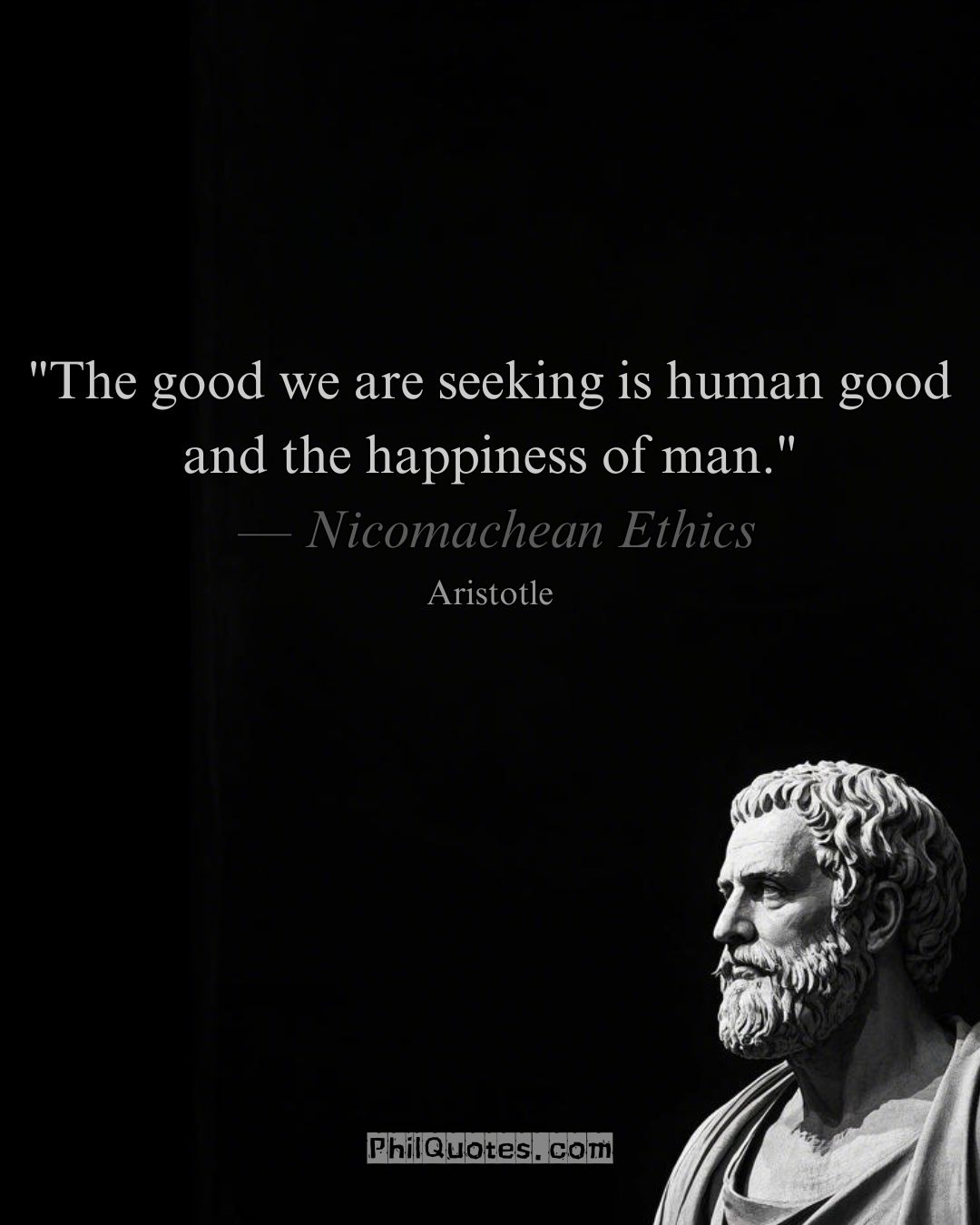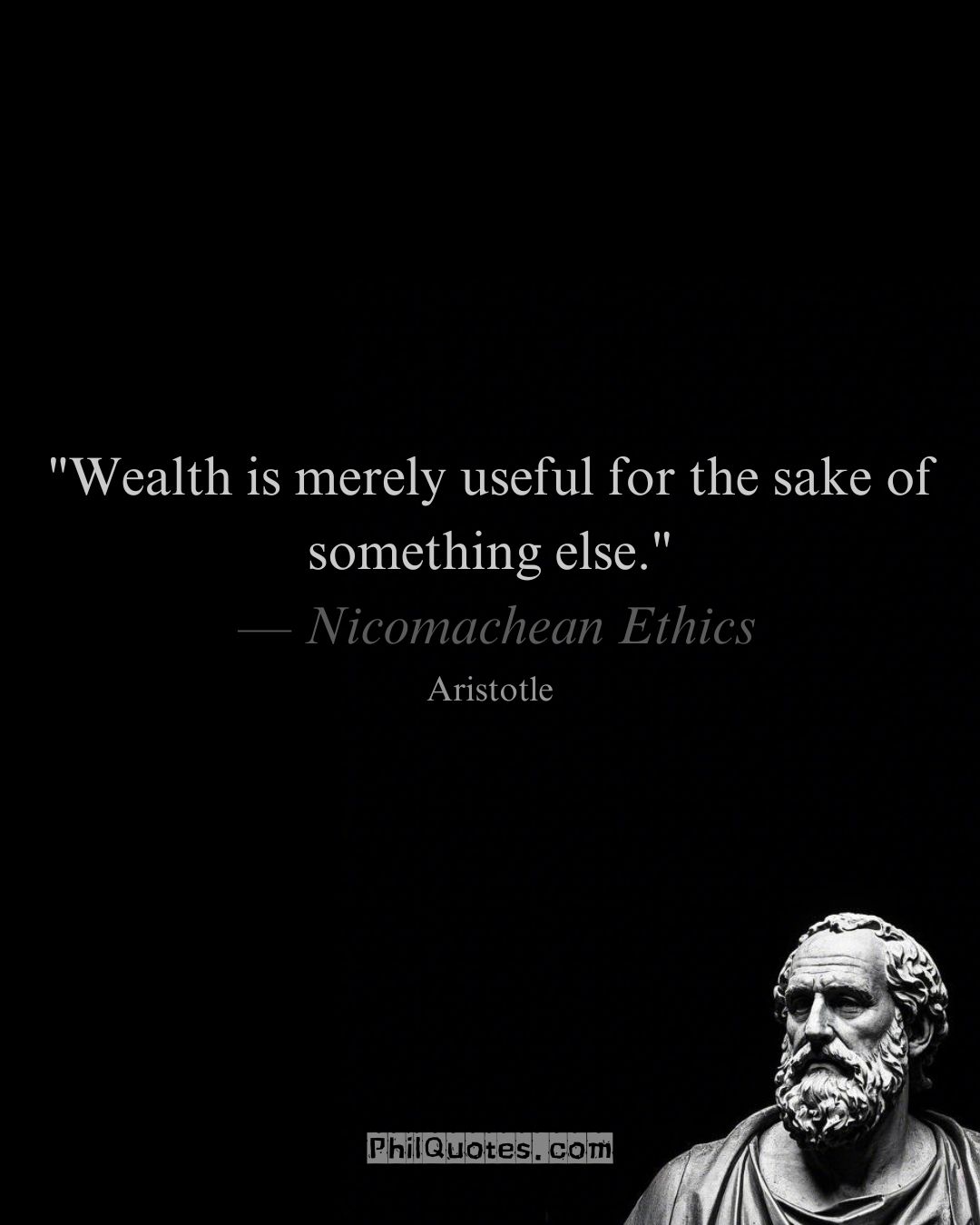Aristotle Nicomachean Ethics Quote: “Happiness seems to require this sort of prosperity; and hence some identify it with good fortune.”
“Happiness seems to require this sort of prosperity; and hence some identify it with good fortune.”— Aristotle, Nicomachean Ethics, Book I, Chapter 8 Simple Explanation:Aristotle clarifies that external conditions (wealth, health, social status) enable — but don’t define — happiness. While good fortune (luck) jumpstarts opportunities, true eudaimonia demands ethical alignment of prosperity with virtue. … Read more
